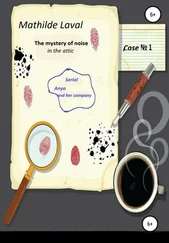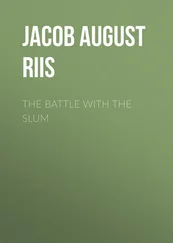Finally, when the sky had begun to dim and a fine coastal fog rolled in off the bay, Arie got the back door open and helped Curran and Handy haul in all the would-be ramparts. Before dark, they got the hole over the kitchen sink secured and most of the windows covered. The squares of thin metal they’d cut from the old appliances were wickedly sharp, and they warbled and thundered while being wrestled into place. There was still more to do down here, but when they were finished and the metal was boarded over, there was a palpable sense of security and satisfaction over a day well spent.
“It would be best to hear from you first, Curran.”
The men had gone to the roof to wash up and make a perimeter scan, and afterward they had once more taken their meal together. Once Curran had fed and settled Talus—who was none too happy to be left out of their company again, and proved it by sitting under the inside hatch and whining softly—he returned to the attic, and they settled themselves in a loose circle.
Curran, who sat backward on the single wooden chair, rubbed his palms on his thighs, considering. “I told you how things were for me when the die-off hit,” he said. “You already know a whole lot more about me than I know about any of you.”
“That’s so,” Arie agreed. “But what you know about the high school is the first thing we need to hear.” She was sitting beside Renna on the Packard seat, and she patted her forearm. “Renna has a piece of that story, too, and maybe it will ease her telling of it if you go first, Curran.” At the mention of the school, Arie felt Renna tense, but was reasonably confident she’d open up when the time came.
Curran took a deep breath. “Fair enough,” he said. “Like I told you, the guys who first took over have turned it into a kind of prison—basically a concentration camp, I guess. My mistake was thinking that it would all be fine because I knew the two who brought me in.” He gave a humorless little laugh. “Wrong.”
He explained that from the very first night he was ushered into a long, one-story building and put in a room with eight other guys. It had once been a science lab, and with all the tables removed was fairly large, but with no windows it had a claustrophobic feel. The room was outfitted with several bunk beds—five sets—and each man had staked out a small space to hold a change of clothes and little else. “When I got there that first night, a bunch of them were hunched around a table playing cards. There really wasn’t much else to do when we were locked in,” he said. “The Joes were very intense about pinochle.”
“Joes,” repeated Handy.
“All of us,” said Curran. “All the guys like me who did stuff from the trades. Plumbing, carpentry, electrical—we were all Joe. The auto mechanics, too. We were all Joe.”
Within a couple of weeks, he’d gotten a pretty clear handle on the setup. The bosses lived upstairs in the main building of the high school. There were five of them when Curran first arrived. Each had commandeered a pair of rooms, all of which looked out on the streets below. “Gave them a sightline and a clear shot,” he said.
“So they have guns,” said Arie.
“A couple,” said Curran. “Of course, that’s one of their priority forage targets—right after food and people they can use.”
Everyone else was segregated: the cooks—three women and one man—lived in the rooms behind the kitchen; each of them was a Bessie. A trio of men who worked the gardens were Sams. A larger group of them were called George, and included one old man, two children, and a few hunched and sallow women who had the telltale signs of prior addiction—missing teeth, badly pocked skin, a certain dull and twitchy hunch to their shoulders. The Georges were compelled to do the most tedious and unpleasant jobs. They cleaned the latrines and carried slops to the compost piles. They sorted scavenged clothing and made rags when that clothing gave out. They sweated over laundry tubs and mopped all the buildings every week. The Sams and Georges were kept in side-by-side portable buildings; like the science room and the back of the kitchen, there were no windows.
“How did they decide where to put you?” said Handy.
“I mentioned Russell before,” he said. “The Konungar guys call him Chief. He’s a real piece of work—uses the principal’s office. Isn’t that great?” His mouth tightened into a colorless line. “They haul you in, and Russell’s sitting there behind the big desk like king shit. That’s your ‘entrance interview.’ Very official. Everyone starts their first day at New Reykjavík talking to Russell.” He combed the fingers of one hand through his short beard while he talked, making a small bristly sound. “The Chief has the final say on who works where. In my case, he had Darius and Little Mikey’s word for it that I knew construction. So I was a Joe right from the start. That was…lucky, I guess.” His face went somber, and the stream of words quit abruptly.
The moon was up again, a sliver shaved off since the night before, but bright enough to make the frogs sing. “Renna,” said Arie. “What did they call you?”
On the sofa, Renna shifted slightly away from Arie. “Posie,” she said. “There were four of us, so they—they had to share.” She turned to Curran. “When I got out, there were seven bosses. They ran across a little group living in a house about a mile away. There were two new guys who got put in with the Joes, and two of the old Joes got promoted.”
“So,” Arie said, turning the conversation smoothly. She did a quick calculation. “Somewhere around thirty people. That’s impressive. By my estimate, they’ve cast a net around ten percent of the people left in town. Maybe more.”
“Ten percent?” said Renna. “You think there are only three hundred people left here, out of, what…twenty-seven thousand?” She stared at Arie, eyes large in the candlelight.
“Something like that. It’s a damn rough estimate,” said Arie. “Those first days, before everything went dark, they yelled a lot of numbers, but it was the usual horseshit. They didn’t know. How could they? It was still knocking us down like bowling pins. Toward the end, though, one of the last things I heard was a guy on the radio. He kept repeating that almost everybody was dead. Almost everybody.” She leaned forward with her elbows on her knees and stared at her feet.
“I couldn’t shake that idea,” she continued. “It was all I could think about for weeks, and I kept doing math—in my head, on paper, all day the numbers kept circling me in a cloud. That was when there were still a few people wandering around. I sat at that front window, and I kept a running tally of every person I laid eyes on. Then one day I didn’t see anyone all day. This was maybe a week after the hit, and I made up my mind to go out.
“The next morning I got up at first light and walked five blocks west—that’s about a half mile—and I worked my way back home. Knocked on every door, even if the red slash was on it, and mostly there was a whole lot of nothing. That pox mark didn’t seem to mean much anyway—not many had time to fuss with it before the Pink slapped them dead. A couple of times I swore I heard something moving around inside, and twice I saw curtains move, someone peeking out at me, a shadow behind the glass. But not one door opened. Got up and did it all over again the next day in another direction, and more of the same.
“It was the fourth day when someone finally opened. He was just a boy, twelve I suppose. Maybe thirteen. Growled at me like a cornered animal, actually showed teeth, and he waved a big chef’s knife at me. What was in that child’s eyes was nothing but fear—it had hollowed him out and taken over.”
Читать дальше













